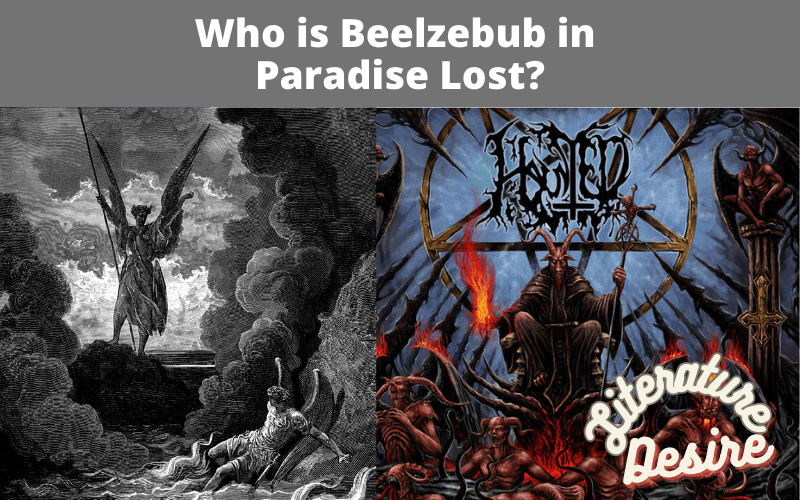In Milton’s epic poem, Paradise Lost, the personality of Beelzebub plays an important role. As one of the fallen angels, Beelzebub is portrayed as a commanding and calculating figure who becomes Satan’s closest collaborator ally in their rebellion against God.
This article aims to discover the depths of Beelzebub’s character, uncovering his origins, motivations, and influence within the storyline of Paradise Lost.
Advertisement
Who is Beelzebub in Paradise Lost? Exploring the Enigmatic Character
Beelzebub, also known as the Lord of the Flies, is a significant character in John Milton’s Paradise Lost. In Paradise Lost, Beelzebub symbolizes vanity and corruption, showcasing the consequences of pride and rebellion.
Advertisement
His character plays a pivotal role in the poem, offering strategic counsel to Satan, contributing to the plot’s progression, and embodying the complex themes explored throughout Paradise Lost.
Advertisement
Overall, Beelzebub’s presence in the poem adds depth and intrigue, serving as a captivating character within Milton’s masterpiece.
Advertisement
In the hierarchy of the fallen, Beelzebub stands as the second-in-command, serving as Satan’s trusted advisor and confidant.
Beelzebub’s Origins
Beelzebub’s origins trace back to biblical and historical sources. The name “Beelzebub” finds its roots in Baal-zebub, a Philistine deity mentioned in the Bible.
In Paradise Lost, Milton adds depth and complexity to the character by blending elements from various religious and mythological traditions.
Beelzebub’s Role in Paradise Lost
Satan’s Right-hand: The Loyal Lieutenant
Beelzebub’s most prominent role in Paradise Lost is Satan’s loyal lieutenant. He stands by Satan’s side through their journey from Hell to Earth and ultimately to Eden.
Beelzebub’s unwavering loyalty and cunning intellect make him a valuable ally to Satan, as they plot their revenge against God.
Beelzebub as Voice of Reason and Strategy
Within the ranks of the fallen angels, Beelzebub emerges as the voice of reason and strategy.
He offers wise counsel to Satan and suggests various plans of action, including their covert entrance into Eden and the temptation of Adam and Eve.
Beelzebub’s calculated approach highlights his intelligence and ability to manipulate situations to their advantage.
Symbolic Representation of Vanity and Corruption
Beelzebub’s character symbolizes the themes of vanity and corruption in Paradise Lost. His name, Lord of the Flies, alludes to decay and decayed power.
Beelzebub’s embodiment of these themes emphasizes the consequences of pride and rebellion against divine authority.
The Bottom Line
In Paradise Lost, Beelzebub emerges as a captivating and multi-dimensional character. As Satan’s loyal lieutenant and voice of reason, Beelzebub’s intelligence and cunning contribute significantly to the narrative’s development.
Symbolizing vanity and corruption, his character serves as a reminder of the consequences of pride and rebellion. Beelzebub’s presence in Paradise Lost enriches the poem and provides readers with a profound exploration of the complexities of sin and its aftermath.
Frequently Asked Questions
The name “Beelzebub” derives from Baal-zebub, a Philistine deity, and symbolizes the lord of the flies or decay.
He serves as Satan’s trusted lieutenant and advisor, offering strategic counsel and supporting him in their rebellion against God.
Beelzebub’s character drives the narrative forward by providing critical guidance and serving as an embodiment of vanity and corruption.
While Beelzebub is a fallen angel who embodies sin and rebellion, he showcases intelligence, loyalty, and strategic thinking, making him a complex character.
Beelzebub commands respect and fear among the fallen angels due to his position as Satan’s right hand and his astute nature.
Beelzebub’s character exemplifies the themes of vanity, corruption, and the consequences of rebellion against divine authority, adding depth to the poem’s moral lessons.

